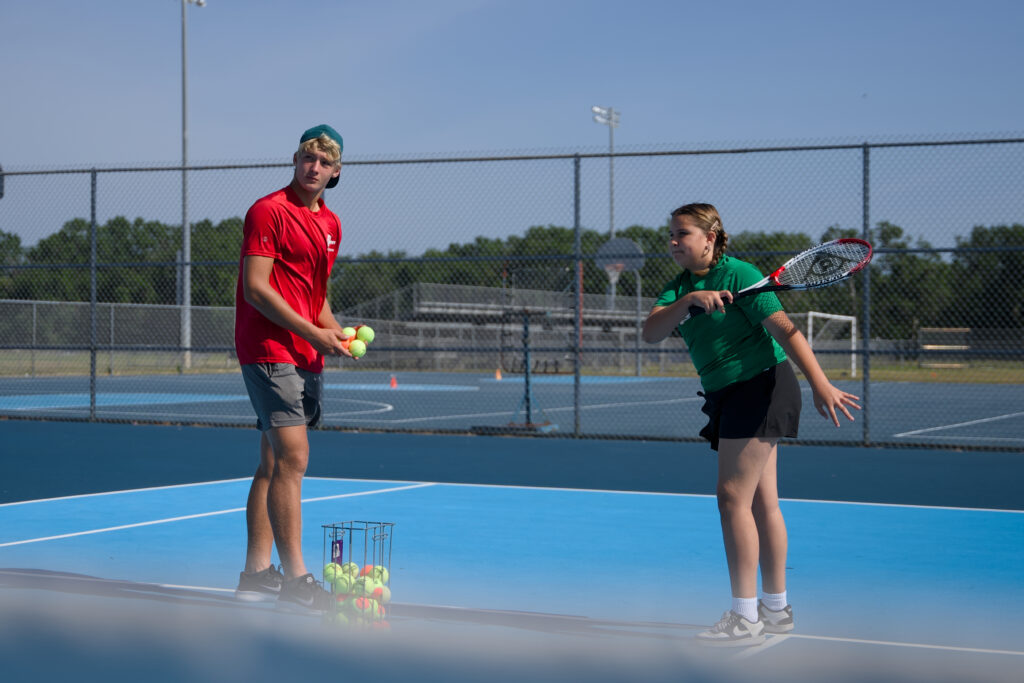3 Tips to Follow if you Want to Start Coaching
Coaching youth sports is one of the most rewarding things you can do. Whether it’s your child’s team or you’re coaching other kids in the community, coaching allows you to be the reason kids look forward to sports. As a coach, you not only help shape kids as athletes and people, but you become an integral part of their youth sports journey and one of the reasons they fall in love with sports!
Getting started can be intimidating for beginners. Here are three tips about coaching technique to help you get started:
1. “Fun First Fundamentals” is the Key to Success For Coaching Youth Sports
Coaching may seem intimidating from the outside, but in youth sports, your number one job is to make sure the kids have fun! “Fun first fundamentals” is a phrase that often refers to teaching the fundamentals of the game in fun and engaging ways that kids can understand. Kids learn when they’re having fun, so that is the first step to helping them not only enjoy sports, but improve their athletic skills.
You don’t have to be an expert to achieve a positive environment for kids. You can use games, challenges, and creative drills to keep things light and engaging. These activities can be found with a quick Google search, or you could coach for an organization like i9 Sports® that provides professionally developed drills on the i9 Sports® GameDay app.
Many of these drills and fun challenges help improve both sport-specific skills and basic childhood development skills such as balance and hand-eye coordination. Remember, young athletes are still developing as people. They are still learning how to hop on one foot let alone how to dribble a soccer ball. By keeping practices fun and engaging, you’re helping them grow as people, not just athletes.
2. You Don’t Have to be “Tough” on Kids—Communicate Clearly
Many think coaches have to teach kids how to be “tough.” That is not the case, nor should it be the norm in youth sports. You can be a fantastic coach without raising your voice or using fear to motivate. In fact, positive and encouraging coaching is typically preferred at the youth sports level. Kids respond better to a positive and encouraging environment.
With youth athletes, it’s best to meet them at their level. Bend down on one knee so you’re eye to eye with them, keep instructions simple and age-appropriate so they can understand you, then show them what you mean. Kids tune out raised voices and long lectures. They want to play, not sit through speeches. If you raise your voice at them, then they shut down, they won’t listen and won’t perform. Instead, use positive feedback and always emphasize effort over perfection. This allows them to build confidence, which is crucial at this age and stage of development.
3. Good Coaches Never Stop Learning
You don’t have to be a perfect coach on day one. The best coaches are always learning. They try new drills, adjust their approach, and reflect on what worked versus what didn’t work. It is important to let your players see that you are also learning. When they watch you try a new warm-up or admit a mistake, they learn it’s okay to make mistakes as long as you learn from them. You are modeling humility and growth, which are the same things you want them to learn.
To become a coach is to step into a role that is bigger than the sport itself. You are not just teaching skills, you are helping young athletes discover what they are capable of. Yes, coaching comes with challenges. But the reward is unmatched! Seeing kids light up when they master a skill, watching teammates cheer each other on, and knowing you played a part in those moments makes your time with them meaningful and fulfilling.
Become a Coach Today
At i9 Sports®, we make coaching easier than ever! We provide professionally developed drills and practice plans for you so you don’t have to think about it. All of these resources can be accessed on-the-go via our i9 Sports® GameDay app, available for Apple and Android devices.
You bring the fun, we bring the practice plans! Volunteer today.
